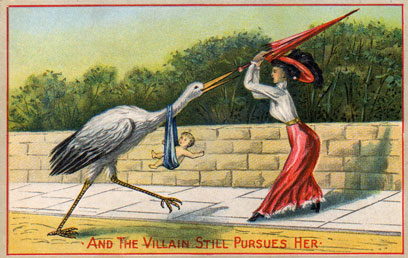OK, there’s nothing more annoying than having someone say, “I told you so,” and thus, on those rare occasions when I make a correct prediction, I defer to that sentiment and restrain myself. But every now and then the impulse is irresistible, and today is one of those times.
Last March, after oral argument before the Supreme Court in the Hobby Lobby case, I wrote:
When the decision comes out in June, Hobby Lobby and Conestoga Wood will be given not an exemption to the contraception mandate but an accommodation comparable to what has been afforded to religious non-profits, under terms that define the nature and character of for-profit companies that can make free-exercise claims. Free exercise rights will thus be extended, but not at the expense of the government’s compelling interest in gender equity, which will be preserved via the requirement that the cost of contraceptive coverage be assumed by the insurers who administer the insurance plans of the qualifying companies.
You heard it here first.
Yes, you did. That’s exactly how Scotus has decided the case — and in a way that bodes well for those who want to assure that female employees of religious non-profits like the University of Notre Dame will get the free coverage of contraceptive service mandated under Obamacare.
In order to understand the decision, you have to know that it is based on the 1993 Religious Freedom Restoration Act (RFRA), which tells the court that in order to overrule a claim of religious free exercise (against federal law), 1) the state must have a compelling interest to do so; and 2) in doing so it employs the least restrictive means. In Hobby Lobby, the court assumed (without coming to an actual determination) that the state interest in providing the full range of contraceptive services was compelling, but (as I predicted) found that the Obamacare mandate was not the least restrictive means of fulfilling that interest.
The least restrictive means, according to the court, would be for the government itself simply to pay for the services. Not that a new government program would necessarily be necessary. Because ready to hand — and certainly less restrictive — is the accommodation whereby religious non-profits sign a waiver, after which their insurance provider or administrator must pick up the tab. Writing for the majority, Justice Samuel Alito kept open the option of rejecting such an approach for those (such as the University of Notre Dame) who find this too an unacceptable burden on their religious liberty: “We do not decide today whether an approach of this type complies with RFRA for purposes of all religious claims.”
But here’s where things get really interesting. Besides signing on with the majority, Justice Anthony Kennedy wrote a separate concurrence in which he took the position that there is indeed a compelling state interest in providing contraceptive services: “There are many medical conditions for which pregnancy is contraindicated. It is important to confirm that a premise of the Court’s opinion is its assumption that the HHS regulation here at issue furthers a legitimate and compelling interest in the health of female employees.”
And Kennedy declares as well that the accommodation for religious non-profits — now extended to closely held for-profits that demonstrate a bona fide claim to religious commitment — is indeed a valid means of reconciling the religious liberty and the coverage priorities: “In these cases the means to reconcile those two priorities are at hand in the existing accommodation the Government has designed, identified, and used for circumstances closely parallel to those presented here.”
Bear in mind that what the religious non-profits protesting the accommodation want is the exemption provided to actual religious bodies (like churches), such that female employees simply do not receive contraception coverage at all. A case involving that religious liberty claim is almost sure to come before the court next year. Kennedy’s concurrence provides about as clear an indication as there could be that he thinks the accommodation will pass muster under RFRA.
For that reason, Hobby Lobby will prove to be a significant setback for the Catholic bishops and other free exercise maximalists, a good omen for contraception coverage advocates, and a fine result for those interested in a reasonable balance of the interests at hand.






